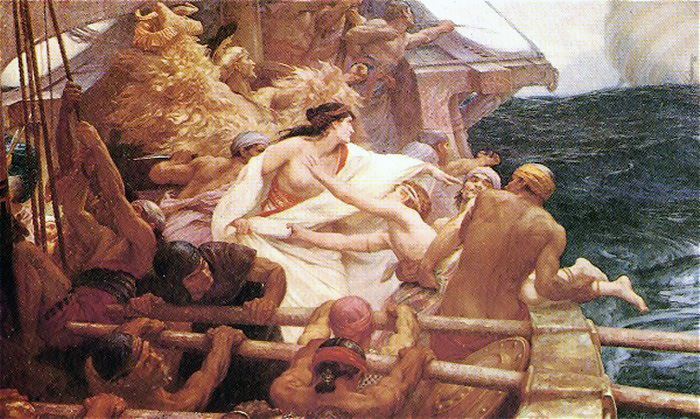
December 19, 2013, by Helen Lovatt
They might be Argonauts
One of the great things about working on Classics, and especially Classical Reception, is the enormous variety of material with which you can work. My current major research project is a history of the myth of Jason and the Argonauts. Thinking about how passing references to the Argonauts form the way we think about them, I remembered a catchy song from my teenage years, ‘Birdhouse in your Soul’ by They Might Be Giants, and its reference to ‘killing Jason off and countless screaming Argonauts’.
This song is apparently sung in the persona of a night-light: ‘who watches over you?’ The nightlight is in the shape of a blue canary, so the birdhouse in your soul is a place where you internalise the love around you and appreciate that it is always there. It is a love song, suitable on some levels for both child and beloved. In the room there is a picture of a light house, and the night light reflects that it would not be able to handle this job: the sailors would all die, exemplified by Jason and the countless screaming Argonauts. Jason and the Argonauts feature, then, as icons of sailing – is this a reference to the idea that the Argo was the first ship?
If you read the song as a love song, does this sense of inadequacy express a fear of commitment, or the feeling that as parent or lover we are not up to the job of protecting our loved ones? We promise love and don’t always manage to keep it burning. If so, Jason and the Argonauts offer many interesting connections: Jason was not exactly good at commitment, and failed to protect Medea and the Argonauts on a number of different occasions. Jason’s failure to escape safely from Colchis with Golden Fleece and Medea leads to Medea’s killing of her brother. His failure to protect Medea and her children in the Corinth of Euripides’ tragedy Medea, indeed his abandonment of them, leads to Medea’s killing of their children in vengeance.
If this is a song about a child, then the Argonaut reference may well evoke the dreams of a child arising from the films they watch and the books they read: Greek mythology is still a popular topic, and Ray Harryhausen’s 1963 film Jason and the Argonauts is a key moment in special effects history. Do the screaming Argonauts in the song represent the dark side of the mythology so commonly suppressed, but lurking, in children’s literature, and indeed in the Harryhausen film?
Images: Herbert Draper (1904) The Golden Fleece, Oil on canvas, 155 x 272.5 cm. Bradford Museums, Galleries & Heritage (Cartwright Hall)
Here is a video of the song on Youtube:
